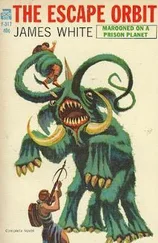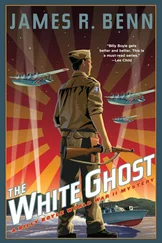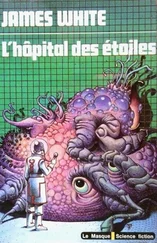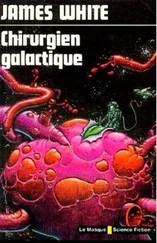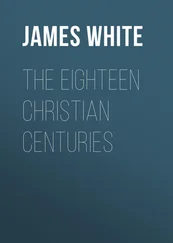Omnivorous life-forms were much more adaptable in the matter of food because they had the choice of hunting for it, gathering it or, when their ability to adapt became the stirrings of true intelligence, of herding and cultivating it. And if these intelligent omnivores were threatened with starvation because a crop had failed or their food-herds had sickened and died, they would find a way to survive even if they suffered a natural disaster on the scale of that which had overtaken Wemar.
There was a much easier way to that which the Wem hunters were now pursuing.
Gurronsevas went on, “Out of instinct or experience, the few animals that are left to hunt have learned to stay out of the sun. Large and small, they have become twilight or nocturnal creatures who shelter during daylight in deep caves and ground burrows. And because they have only each other to prey upon, they have become very dangerous indeed. Frequently, as you have told me, your hunters have to spend many dangerous hours in the sun, hampered by their protective cloaks, while digging them out or following them into deep lairs, because at night the advantage lies with their prey. It is hard, dangerous work that they do, and often your hunters become the hunted.
“A mere grower of vegetables would not attract the admiration and prestige of a brave hunter,” he continued, “but the work is easier and the life-expectancy higher because vegetables don’t fight back.
“Unless served with too much powdered cressle root,” he added.
“Gurronsevas,” said Remrath, “this is a serious matter. The Wem have always been meat-eaters.”
He wished suddenly that he was back in Sector General and able to consult Chief Psychologist O’Mara or, better still, Padre Lioren, about this problem. He was pitting logic against belief, indisputable scientific fact against a situation that had become a religion; and, as so often happened with emerging cultures, science was losing the argument.
“You are right, of course,” he replied. “The matter is very serious and the Wem have always, as far back as your memories and written records go, been meat-eaters. Many centuries ago, when your plains and forests were still well stocked with animal life and you could hunt them in the sunlight without fear, I think that it was not only the adults who ate meat. I think, and my thoughts are supported by the investigation of our healers on the ship, that infants, newly-weaned from their mothers’ milk, were fed a thin, vegetable, meat-flavored stew because their young stomachs were unable to accept meat alone. At a very early age, however, and making allowance for their smaller physical size, they would be given meat in the same proportion as that served to the adults.
“But neither they, nor you, are necessarily carnivorous.
“Physically the Wem are not suited to be farmers,” Gurronsevas went on. “Your long rear limbs and tails, your fast movements and ability to suddenly change direction, were probably evolved to escape large predators in your pre-sapient past. Until the ecological catastrophe overtook your world, meat was always plentiful and hunting and herding it was much easier than trying to grow it, so that meat-eating became a virtue of necessity. But when your meat supply diminished, and you may have difficulty accepting my words, it became a vice.
“I do not speak with certain knowledge,” Gurronsevas went on quickly before Remrath could interrupt, “because I can only speculate about events that happened two or three centuries ago. But I would guess that, when the meat shortage became gradually more severe, the short period when vegetable stew was fed to young infants was increased until they reached puberty, and the restriction on eating meat was extended, probably at their own request, to those aged adults who were past their physical best. I would guess that soon afterwards only the young male hunters and female hunters, because of the increasing dangers they faced and their importance to the survival of their tribal group, were certain of having meat to eat. And in times of great shortage it might be that the hunters were expected to keep the meat they caught for themselves.
“They would not do this because of selfishness brought on by great, personal hunger,” Gurronsevas added. “It would be because of a firmly held belief that the future survival of the Wem lay in feeding the food-gatherers with meat. Is this not so?”
Because the returning hunters were making slower progress than expected, there had been time for Gurronsevas to learn a little of Remrath’s body language and facial expressions. The old cook was looking distressed and ashamed, emotions which could change quickly to anger, and it was not replying. In his anxiety to help the other he was pushing too hard. Something must be said quickly to lighten this conversation, he thought, or contact might be broken permanently here and now.
“If I were to ask them politely,” he said, “would your hunters give me some of their meat? Just a small portion would do. I can be quite creative with a meat course.”
For a moment Remrath had difficulty with its breathing, but the choking sounds subsided into the low barking that he recognized as the Wem equivalent of laughter.
“They would not!” it said. “Meat is too precious for an off-worlder cooker of vegetables to risk spoiling it.”
Gurronsevas remained silent, deliberately. As he had hoped, it was Remrath who now felt that it had given offense because its tone became apologetic.
“You would not spoil food deliberately,” Remrath said quickly. “But you might change its taste with your sauces and spices so that they would not recognize it as meat.” It hesitated, then went on, “And you are right. Unless there was a particularly successful hunt, and that has not happened since I left the hunters to become a teacher, neither the old nor the young share the meat. Sometimes, secretly, a returning hunter will spare a morsel for a teacher parent or an offspring, but I cannot remember when that last happened.
“Now meat is so scarce that even the hunters are forced to eat vegetables,” it went on in a voice so quiet with shame that Gurronsevas barely heard it, “to add bulk to what would otherwise be very frugal meals. But they insist that meat is present to give them strength, and they feel privileged when the taste of meat is there. I think their hunters’ pride very often brings them close to starvation and weakness rather than giving them greater strength.”
That was what Gurronsevas had been trying to tell it all along, but this was not the time to be scoring argument points. Instead, he laughed and said, “Then we must go on cooking vegetables, and make the hunters envious of the taste.”
Remrath did not laugh. It said, “A few days ago, before you had everyone wanting to eat your strange three-meals-in-one, that would have been a ridiculous suggestion. But now …Gurronsevas, vegetable novelties for the young and very old are not enough. It is meat that we need if the Wem are to survive as a race and, and our hunters are long overdue.”
In a regretful voice it added, “Need I remind you of the promise made by your First Healer that the off-worlders would leave us before the hunters returned?”
Prilicla had left it to Gurronsevas to decide when would be the best time to tell the people in the mine that their hunters could be expected soon, and this seemed to be the right moment. But with the good news there should also be a strong reminder that changes for the Wem were inevitable. He opened the satchel strapped to his side and directed an eye into it, searching for Rhabwar’s reconnaissance pictures.
“Allowing for the differences in size and age,” he said, “the young and old Wem are healthy and active on their diet of vegetables. The healers on the ship, who have knowledge of such matters covering many worlds, say that your young adults, too, would live and thrive and proliferate on the same diet. The eating of meat is good for them, the healers agree, but it is not the only source of health and energy for them. We feel that the eating of meat has become a belief and a habit going back many generations, and that it is a habit that can be broken.
Читать дальше
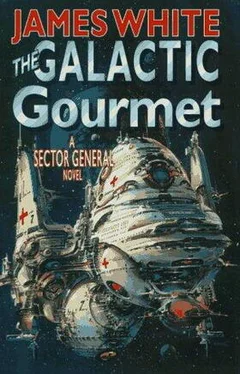
![Гарри Гаррисон - Bill, the Galactic Hero [= The Starsloggers]](/books/87536/garri-garrison-bill-the-galactic-hero-the-star-thumb.webp)
